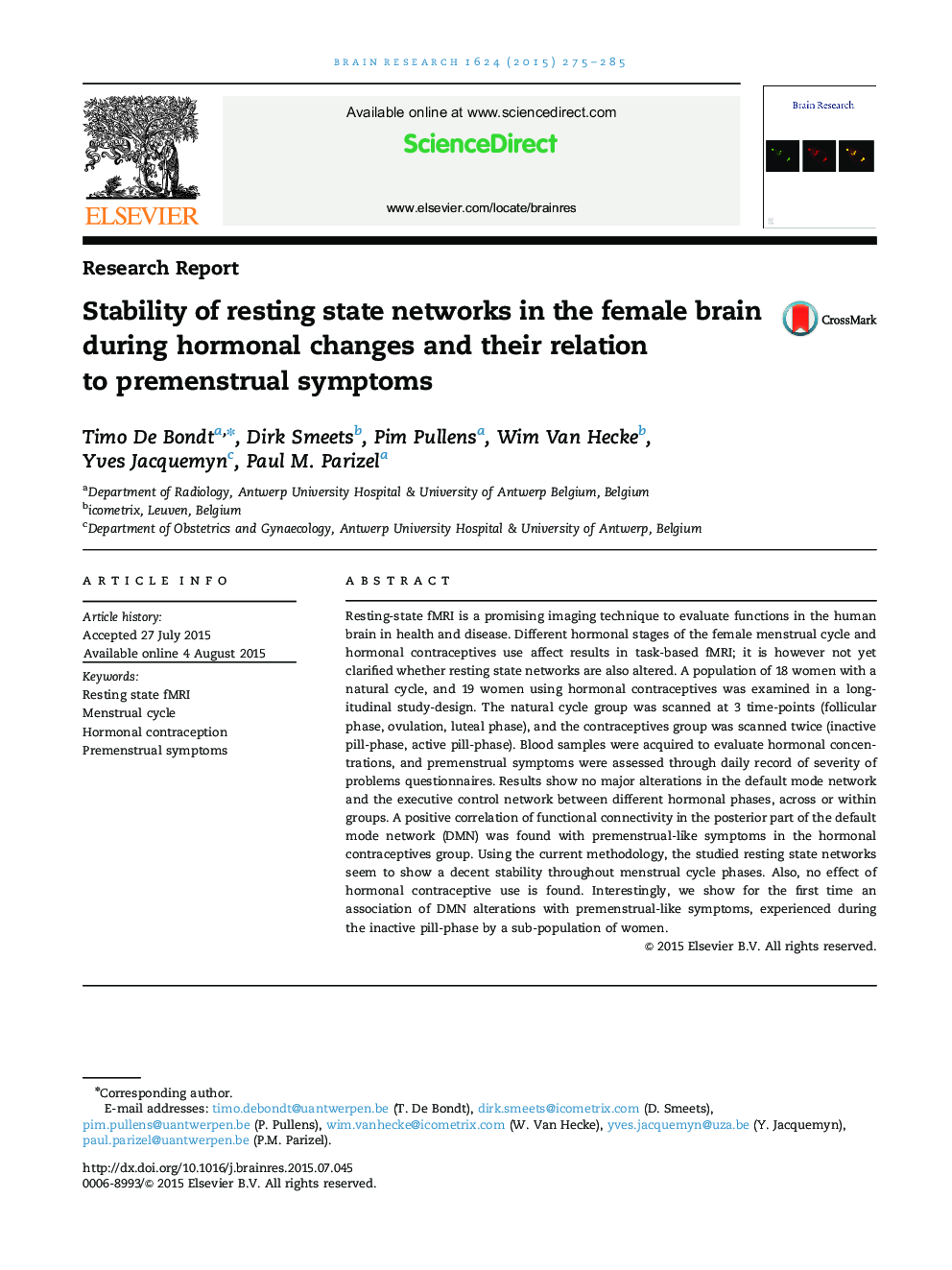| Article ID | Journal | Published Year | Pages | File Type |
|---|---|---|---|---|
| 6262885 | Brain Research | 2015 | 11 Pages |
â¢Default mode and executive control network are studied with resting-state fMRI.â¢Female volunteers were scanned on different hormonal phases.â¢Correlations are found between premenstrual symptoms and default mode network.â¢Resting state networks are relatively unaffected by different hormonal stages.
Resting-state fMRI is a promising imaging technique to evaluate functions in the human brain in health and disease. Different hormonal stages of the female menstrual cycle and hormonal contraceptives use affect results in task-based fMRI; it is however not yet clarified whether resting state networks are also altered. A population of 18 women with a natural cycle, and 19 women using hormonal contraceptives was examined in a longitudinal study-design. The natural cycle group was scanned at 3 time-points (follicular phase, ovulation, luteal phase), and the contraceptives group was scanned twice (inactive pill-phase, active pill-phase). Blood samples were acquired to evaluate hormonal concentrations, and premenstrual symptoms were assessed through daily record of severity of problems questionnaires. Results show no major alterations in the default mode network and the executive control network between different hormonal phases, across or within groups. A positive correlation of functional connectivity in the posterior part of the default mode network (DMN) was found with premenstrual-like symptoms in the hormonal contraceptives group. Using the current methodology, the studied resting state networks seem to show a decent stability throughout menstrual cycle phases. Also, no effect of hormonal contraceptive use is found. Interestingly, we show for the first time an association of DMN alterations with premenstrual-like symptoms, experienced during the inactive pill-phase by a sub-population of women.
